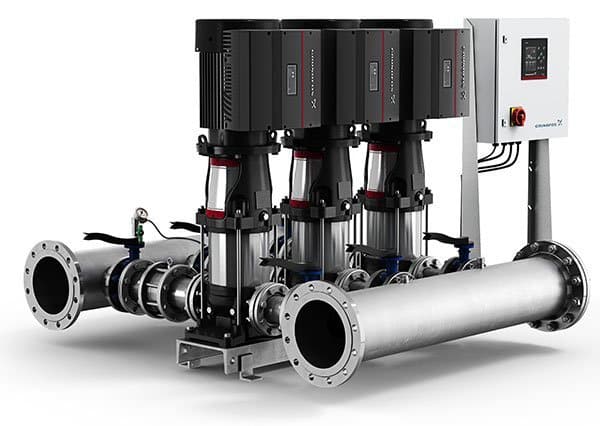Pumps play a critical role in overall HVAC System efficiency. We are happy to report that Grundfos is out ahead of the new Department of Energy requirements that subject pumps to testing and ratings designed to remove the 25% least energy efficient pumps from the market.
What do these pump energy efficiency regulations entail?
- Beginning January 27, 2020, manufacturers will be required to comply with the DOE’s energy conservation standards for certain general pumps.
- Any pumps that do not meet DOE’s new compliance standards cannot be manufactured in the United States after January 26, 2020.
- All pumps within scope manufactured after January 26, 2020 will be required to have the following labeled on the nameplate: PEI, constant/variable load designation and impeller trim.
How will pump efficiency and compliance be determined according to these regulations?
The DOE has developed a series of standardized testing and measurements that will be used to determine pump energy efficiency. The main determining factor will be PEI (Pump Energy Index).
- Pump efficiency will be considered higher as a PEI rating decreases. Pump efficiency will be considered lower as a PEI rating increases.
- PEI ratings greater than 1.0 will be considered non-compliant in accordance with the new regulations.
What are the benefits of these new regulations?
- A significant reduction of CO₂ gas (approximately 270 trillion BTUh by 2030. This is equivalent to the annual electricity consumption of 370,000 homes.)
- Notable energy cost savings for customers.
- Utility rebates for participating companies.
Currently, 90% of the world’s commercial and industrial pumps are considered inefficient, utilizing over 13 billion kWh of the electricity in the United States alone.
For more information on pumps or achieving an energy efficient heating system, contact UEP today.
Full information on the DOE’s new regulations can be found here.



